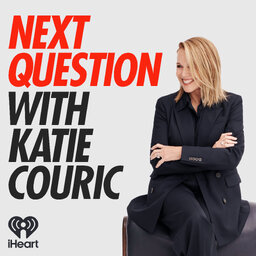Kara Swisher, the “Internet age's cranky Cassandra,” on her memoir, Burn Book” A Tech Love Story
Kara Swisher, Official Next Question plus one and dogged chronicler of the good, bad, and the ugly of the tech world (and the “adult toddlers” that so often populate it), has really seen it all. She made tech her beat at the Washington Post and the Wall Street Journal before most journalists took any notice of the fledgling “nerdy” industry. From there, Kara fearlessly reported on a new generation of tech entrepreneurs who would change the world as we know it. Her journalism breaks news and starts conversations, and her bubble-bursting, down-to-earth approach to those who often get handled with kid gloves is perhaps one of her most enduring traits.
Some call her approach “mean,” and the title of her much-anticipated memoir, Burn Book: A Tech Love Story, plays on this reputation as a reporter who minces no words and is not afraid to ask the hard questions. Kara chronicles the history of how tech came to dominate our lives, and with more potentially life changing tech on the horizon with things like AI, she certainly has some dire warnings. But Kara also has plenty of optimism to share, along with hot takes on everything from Gavin Newsom’s suits to where she derives her confidence (and the bone she has to pick with the question “How are you so confident?”). Nothing is off limits in this funny, insightful, profound conversation.
In 1 playlist(s)
Next Question with Katie Couric
Tired of political headlines that feel like déjà vu? Wondering if you actually need to care about ev…Social links
Follow podcast
Recent clips

The Heart of Longevity with Dr. Rhonda Patrick
1:11:59

Kate Hudson At Her Best
39:12

Katie’s One-on-One With PA Governor Josh Shapiro
53:29
 Next Question with Katie Couric
Next Question with Katie Couric